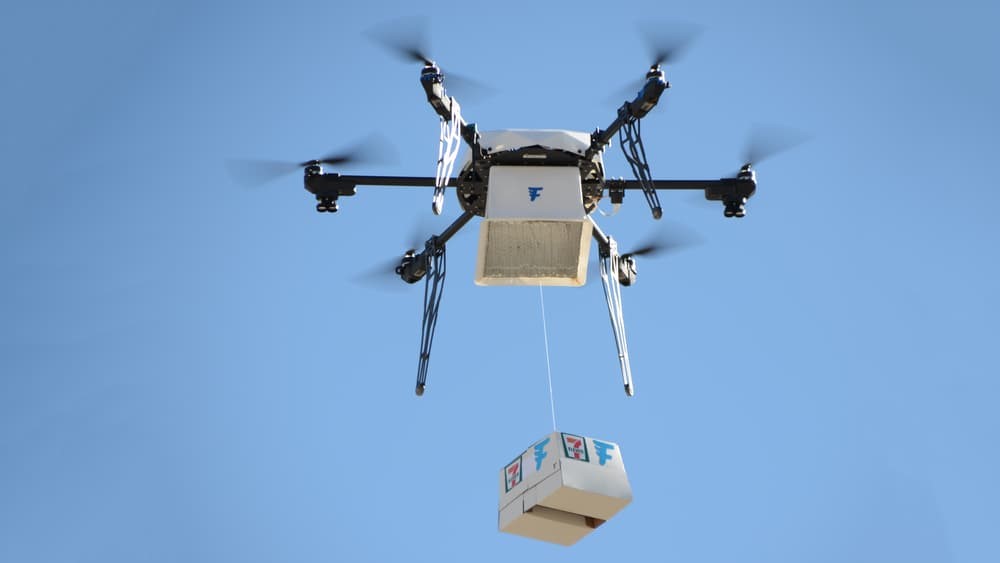
What do flying chicken sandwiches, coffee, doughnuts, and Slurpees have in common with aviation? These items were contained in the payload of the first ever federally-approved autonomous drone delivery trial that unfolded earlier this month. A fully-developed drone delivery system may be long ways away in the United States, but aviation history was made, thanks to the unlikely partnership between convenience store chain 7-Eleven, and drone delivery startup Flirtey, the two organizations who orchestrated the event.
Guided by GPS, a drone made two separate deliveries to customers’ homes within proximity of a 7-Eleven store in Reno, Nevada, one of just six federally approved drone testing sites in the U.S. The sandwich and all other goodies were transported to the designated location within the customer’s backyard within a purpose-built container, where the drone hovered as it carefully lowered the contents onto the ground — all accomplished within just a few minutes.
As convenient as it may be to have a beer, chips, and other guilty pleasures delivered to directly to your house within a few minutes of placing the order, a staggering amount of red tape stands in the way of wider dissemination. The primary obstacle being the new FAA regulations that prohibit flying of commercial drones out of the operator’s line of sight, as well as it being illegal to operate more than one drone at a time.
Discontent with waiting for the obstacles to work themselves out, Flirtey has been nothing short of proactive in making some serious inroads. Last year, the firm accomplished the first federally-approved manually-operated drone delivery, when it delivered medical supplies to a rural clinic in Virginia. Later, in the first quarter of 2016, Flirtey carried out the first urban drone delivery before completing the first ship-to-shore delivery just last month, demonstrating the benefits that drones provide in disaster relief. The company has forged partnerships with NASA, the Nevada Institute for Autonomous Systems, and finally, 7-Eleven, the world’s largest convenience store retailer—a strategic move that provides access to thousands of potential launch sites.
“It was the first few deliveries of our service with the key being we will scale up incrementally from here,” Flirtey CEO Matt Sweeny explains to Gizmag. “For now, we can operate in line of sight; there are 1,500 homes within one mile (1.6 km) of this store. And then as we expand beyond line of sight it opens up to more and more people across the country. 7-Eleven has over 10,000 stores in North America, compared to Amazon, which has fewer than 100 distribution centers so this partnership gives us a huge national footprint, and we can scale incrementally from here.”
Although there isn’t a foreseeable launch date for when restrictions will be lifted, periodic trials may ultimately contribute toward swaying public opinion. Flirtey’s partnership with 7-Eleven grants it the freedom to continue testing its autonomous technology within the line of sight of hundreds of potential recipients. Sweeney expects flights to become increasingly routine within the near future.
Source: Gizmag
Advertisement
Learn more about Electronic Products Magazine





